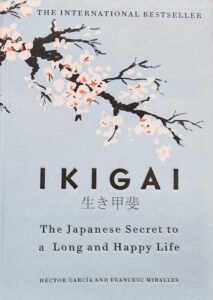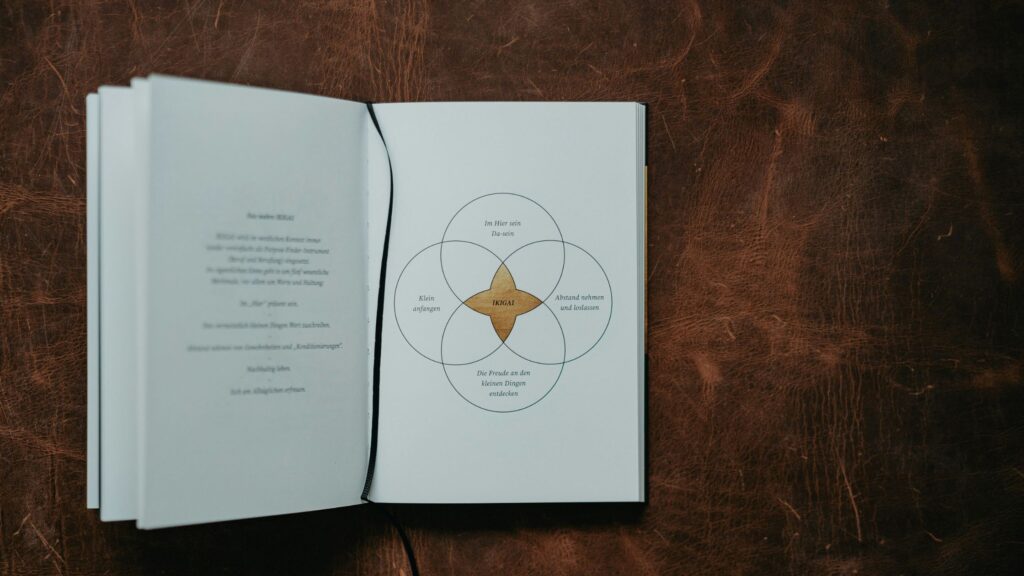The Ikigai book by Hector Garcia and Francesc Miralles is one of the best-selling books of the modern era. The book is widely known for its principles and values, which are taken from Japanese tradition and people. Moreover, the word Ikigai reflects the motive of the book, which means a sense of purpose. Thus, the book explores the different parameters or criteria a person needs for a long and happy life.
Essential Lessons In The Ikigai Book
The most crucial message of the book is the need for a person to find a purpose in life. Taking some references from the studies of Viktor Frankl, a famous holocaust survivor and psychiatrist, the book explores the different ways to increase the longevity of one’s life while enjoying every second of it.

- The Four Pillars Of Ikigai
- Diet For Longevity
- Logotherapy
- Wisdom From The Oldest People
- 10 Rules of Ikigai
The Four Pillars Of Ikigai Book
The book’s primary theme is based on the four questions one must ask oneself if one struggles to live a fulfilled life. Therefore, the reader will find the questions in the Ikigai below.
What do you love?
What are you good at?
World’s needs?
Something you can be paid for?
Diet Is Crucial For Longevity
Apart from the four questions, a good diet is also vital for a person. Most older people in the Japanese tradition eat light and subtle meals. The reason is the unfulfillment of the stomach to create a sense of drive. Additionally, fasting and not eating to the full extent is necessary for good health.
Role of Logotherapy
Logotherapy is a scientific term by Viktor Frankl, which means that human beings need a purpose to have a drive in life. Therefore, many advocate for people to find logos in their work, which will be the primary motivational force for their well-being. Also, in the four questions of the book, one can easily navigate through their lives and find their Ikigai.
Words of Wisdom From The Oldest People In The World
The Ikigai book contains testaments from some of the oldest people the world has ever seen. These people embody the right things that a person needs to adopt in his life for development.
- “Eat and sleep, and you’ll live a long time. You have to learn to relax.” (Misao Okawa, 117)
- “I’ve never eaten meat in my life.” (Maria Capovill, 116)
- “Everything is fine.” (Jeanne Calment, 122)
- “I just haven’t died yet.” (Alexander Imich, 111)
The 10 Rules of Ikigai Literature
In the last section of the book, the authors try to summarise the critical points from the books. So, let’s look at the ten most essential things that literature teaches.
- Stay active, don’t retire.
- Take it slow
- Don’t fill your stomach.
- Surround yourself with good friends.
- Get in shape for your next birthday.
- Smile
- Reconnect with nature.
- Give thanks.
- Live in the moment.
- Follow your Ikigai.
Quote
Only staying active will make you want to live for a hundred years.
A Japanese proverb
Final Thoughts On Ikigai Book
Ikigai is one of the most prominent works in modern literature. It’s no surprise that it inspires thousands of readers daily. Thus, one should check out this work alongside the references given inside.
Frequently Ask Questions (FAQs)
What is the Ikigai concept?
The concept of Ikigai means the reason for one’s existence.
What are the four rules of Ikigai?
The four rules of Ikigai are:
- What do you love?
- Person’s strengths
- What the world needs?
- Lastly, what can you be paid for?
Why is Ikigai so popular?
Ikigai is popular because it formulates tons of studies from Eastern traditions, solely focusing on one’s purpose for being.
Is Ikigai Japanese?
Yes, Ikigai is a Japanese term where “iki” means alive “gai” means worth.

